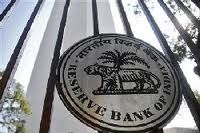 To broaden financial markets, the Reserve Bank will unveil steps to improve the liquidity and depth of government securities market in the coming weeks.
To broaden financial markets, the Reserve Bank will unveil steps to improve the liquidity and depth of government securities market in the coming weeks.
"In the coming weeks, we will roll out more recommendations of the Gandhi Committee report to improve the liquidity and depth of the G-Sec market.
"We will then turn to money markets and corporate debt markets.
“We will introduce new variants of interest rate futures and products like inflation indexed certificates, and work to improve liquidity in derivative markets," RBI Governor Raghuram Rajan said at the BANCON 2013 in Mumbai.
A 13-member group, headed by RBI Executive Director R Gandhi, has made various recommendations on G-Sec market, retail participation and interest rate derivatives market.
Among other things, the panel suggested that investment limit for foreign institutional investors in government
The present limits for investments by FIIs, QFIs and long term investors in government securities and corporate debt stands at $30 billion and $51 billion, respectively.
Rajan further said the Reserve Bank plans to build its developmental measures over the next few quarters on five pillars.
The pillars are: clarifying and strengthening the monetary policy framework, strengthening banking structure, broadening and deepening financial markets, expanding access to finance and improving the system's ability to deal with corporate and financial institution distress.
The government securities comprise dated securities issued by the Centre as well as state governments as also, treasury bills issued by the government of India.
RBI manages and services these securities through its public debt offices.
G-secs, also called the gilt edged securities, are not only free from default risk but also provide reasonable returns.











 © 2025
© 2025